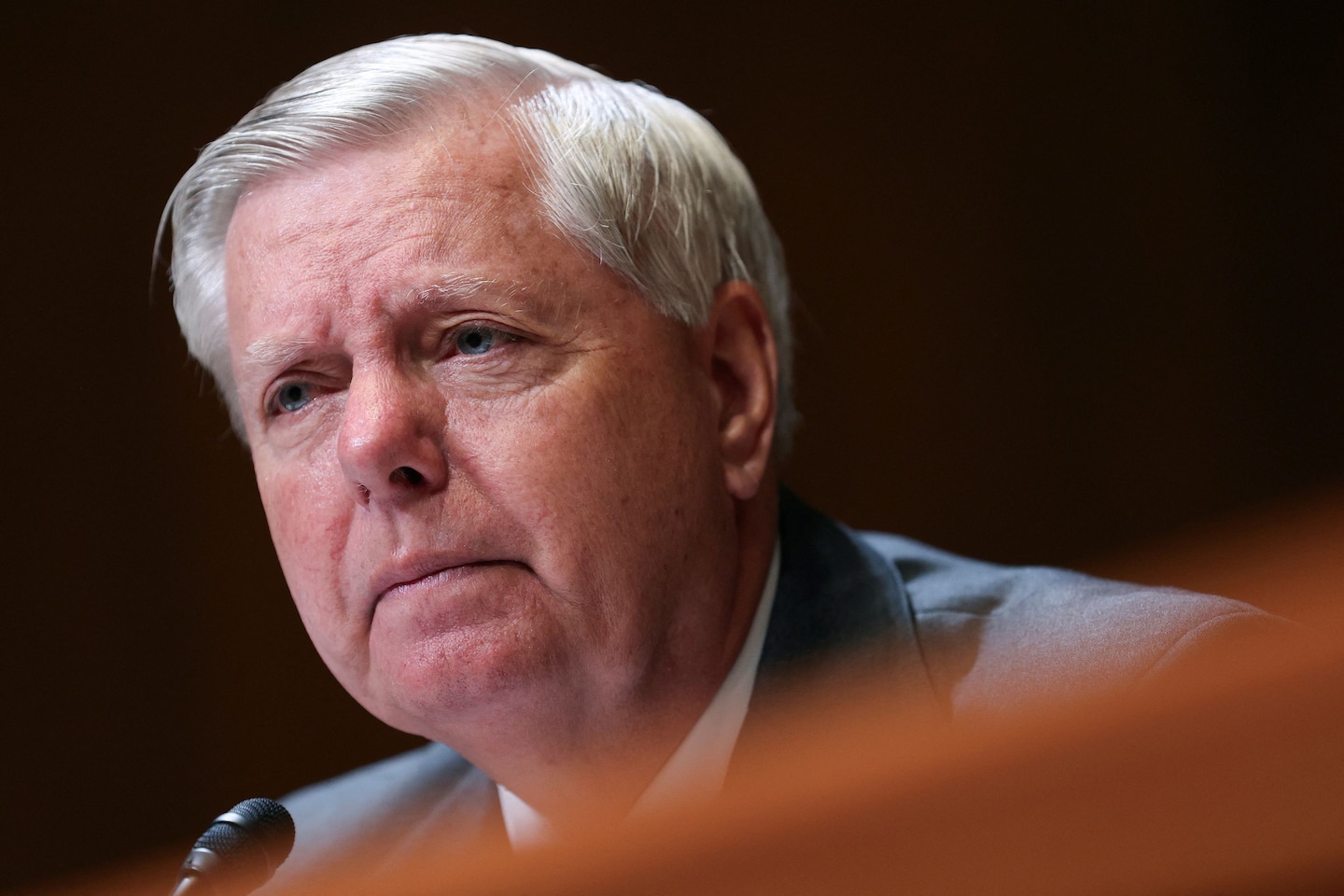Opinion | Why Lindsey Graham must testify in the Georgia voting fraud probe

On July 5, the judge overseeing a special grand jury approved a subpoena of Graham as part of an investigation into whether then-President Donald Trump and his allies tried to corrupt the state’s role in the national election and steal the franchise of millions of Georgia voters.
Graham’s lawyers say the grand jury is a “fishing expedition.”
We say it’s anything but. From the perspective of a constitutional scholar, a criminal defense lawyer and a former federal prosecutor, the subpoena poses a big question for our democracy: Will the rule of law prevail — or are there some people who are just too important to ask to cooperate with a lawful state investigation into whether outsiders tried to use illegal means to overturn the results in a presidential election?
At center stage is a set of rules from the Constitution’s speech and debate clause. It provides that in all cases “except Treason, Felony and Breach of the Peace,” senators and representatives “shall not be questioned” outside of Congress “for any Speech or Debate in either House.”
The clause helps protect lawmakers’ freedom to express their thoughts and positions in the legislative process. But the immunity those rules confer is limited, or bounded, as lawyers say, to ensure that lawmakers do their jobs and not the bidding of external forces with potentially criminal goals of their own. Such as holding onto power regardless of the people’s will.
Graham, a lawyer himself, might or might not have been part of a criminal caper to mess with Georgia’s duly cast and fairly counted millions of ballots to help Trump steal the state’s 16 electoral votes. The Georgia judge approving the seven subpoenas issued on July 5 described the evidence as indicating “multi-state, coordinated efforts” to influence the November 2020 election results in Georgia and elsewhere.
Graham’s precise role remains unclear. We do know that in Trump’s call on Jan. 2, 2021, to Georgia Secretary of State Brad Raffensperger, the then-president pressured Raffensperger to “find 11,780 votes” that did not exist — just enough to overturn the election. The hope was that flipping the outcome in Georgia would trigger similar actions in other battleground states and in sufficient numbers to prevent the certification of Joe Biden’s electors four days later, on Jan. 6.
Graham telephoned Raffensperger on Nov. 13, 2020. The grand jury is entitled to hear sworn testimony about what was behind that call, what Graham sought by making it and who said what to which Georgia officials.
Raffenspergerhas said that in that call, Graham “questioned the validity of legally cast absentee ballots, in an effort to reverse President Trump’s narrow loss in the state,” as The Post reported. Raffensperger asserted that he understood the South Carolina senator to mean that the Georgia official should “‘[l]ook hard and see how many ballots you could throw out.’”
Graham has contested that account. Which interpretation reflects the truth? That’s for the Georgia grand jury to determine, by hearing all relevant testimony. The rule of law requires that those responsible for attacks on our nation’s democracy be held to account.
Graham can try to claim exemption under the constitution’s speech and debate clause, but, as an experienced attorney and lawmaker, he has surely read its words. The Supreme Court has long held that the provision’s specific language means that lawmakers such as Graham cannot use the clause as a pass to avoid testifying about crimes.
On July 6, Fulton County Superior Court Judge Robert McBurney issued a careful ruling denying claims parallel to what Graham is expected to argue. They were made in that case by Georgia state legislators seeking to quash their own subpoenas from the same grand jury. The court correctly cited Gravel v. United States, a 1972 Supreme Court case, as holding that the speech and debate clause does not “immunize a Senator or aide from testifying at trials or grand jury proceedings involving third-party crimes where the questions do not require testimony about or impugn a legislative act.”
The Georgia court also has made clear that the privilege ends “when a witness (or his staff) has engaged with [non-legislators] on topics relevant to the grand jury’s investigative charter.”
The central question in cases involving legislative privilege is whether requiring a lawmaker’s testimony would undermine the legislative function. By calling Raffensperger, Graham looks to have been engaging in political activity well outside any proper legislative function and, therefore, beyond the privilege’s protection.
Graham’s appearance before the grand jury is important not only to understanding the full extent of what happened in the alleged conspiracy to overturn the 2020 election results in Georgia. It also matters to a core tenet of our constitutional democracy. No one, including a senator or a president, is above the law.


